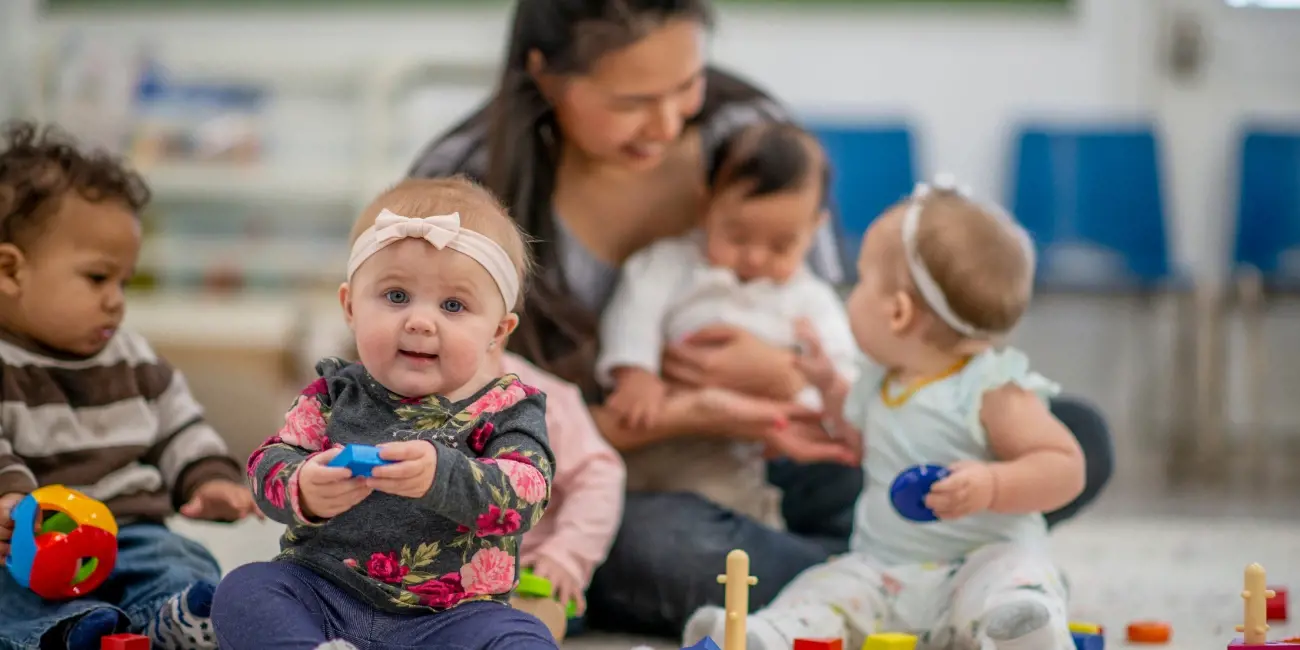Childcare services play a critical role in nurturing and safeguarding our children to ensure they thrive in their physical and mental health until they transition to school.
To maintain the highest standard of quality care, the Australian Children's Education and Care Quality Authority (ACECQA) established guidelines for reporting serious incidents in the childcare sector on January 1, 2012. Like every policy in the childcare sector, these policies are continuously scrutinised, reviewed and updated.
We take a look at ACECQA's requirements regarding the notification of serious incidents and provide information on how and when to report.
Reporting serious incidents
So what happens if your child gets sick or injured at childcare? Childcare services are obligated to report serious incidents within 24 hours of the incident occurring, ensuring the safety and well-being of every child in their care.
If parents or staff members have concerns, there are established processes for escalating these matters. By following the appropriate channels, both parents and staff can contribute to the ongoing improvement and safety of childcare services in Australia.
So, what is a serious incident?
Such incidents are defined as events or circumstances that could potentially pose a risk to the health, safety, or well-being of a child or children, attending the service. No parent ever wants to get that call to say something serious has happened to their child while in care but unfortunately, accidents can happen so there are policies and procedures in place to ensure the utmost safety of each child in attendance.

Examples of serious incidents include:
It’s important to note that these are just a few examples of a serious incident involving a child. For a more extensive list, please see ACEQUA’s policy guidelines and the ACEQUA website.
Accidental injury
This is relating to any incident where a child sustains a significant injury while under the care of the childcare service. For instance, a child falling from the playground and sustaining a fracture or being burned due to accidental contact with hot objects would be considered a serious incident and should be reported.
Medical emergency
Any situation where a child's health is at risk and they require immediate medical attention. For example:
- Severe allergic reactions
- Seizures
- Sudden onset of a serious illness such as an asthma attack or diabetic episode
- Loss of consciousness
- Head injury
These are just a few examples of medical emergencies that can occur and need to be reported.
Physical dispute causing injury
If there is a physical dispute between children or between a child and a staff member that results in injury, it is considered serious. This can include incidents of physical aggression, bullying, or physical harm caused either unintentionally or intentionally.
Unauthorised departure
It is considered very serious when a child leaves the premises without authorisation. A child wandering out of the facility due to a lapse in supervision or a breach in security measures is cause for great concern.
Hazardous material contact
A child who has had access to a hazardous material such as cleaning agents or chemicals, is at risk of serious injury. This can occur due to improper storage, accidental ingestion, or exposure to harmful fumes or substances and must be reported immediately.
ACECQA requires childcare services to follow these steps when reporting serious incidents:
- Immediate response - including first aid and care.
- Incident documentation - this could include a jotting observation to begin but will need to be further documented to maintain accurate records.
- Internal reporting - All incidents should be reported to the service management.
- External notification - If the incident meets the criteria for reporting, the service is obliged to escalate the incident to the state or territory authority.
Follow-up actions
After the incident, the childcare service should take appropriate steps to prevent a recurrence of the incident. This might involve one or more of the following steps:
- Policy review
- Risk management strategies
- Additional training
- Support to staff members
Maintaining a safe and nurturing environment is the highest priority, which is outlined in ACECQA's policy requirements. Reporting serious incidents is only one part, but these guidelines ensure incidents are dealt with quickly and effectively.
Reporting
Each state and territory have their own regulatory authority to report to. Incidents should be reported to the relevant authorities within 24 hours of occurrence.
- ACT - Children’s Education and Care Assurance, Early Childhood Policy and Regulation, Education Directorate, ACT Government.
- NSW - Early Childhood Education Directorate, NSW Department of Education
- NT - Quality Education and Care NT, Department of Education
- QLD - Regulation, Assessment and Service Quality, Early Childhood and Education Improvement, Department of Education
- SA - Education Standards Board
- TAS - Department for Education, Children and Young People
- VIC - Department of Education and Training
- WA - Department of Communities, Education and Care Regulatory Unit
References:
Reporting links - ACECQA



































